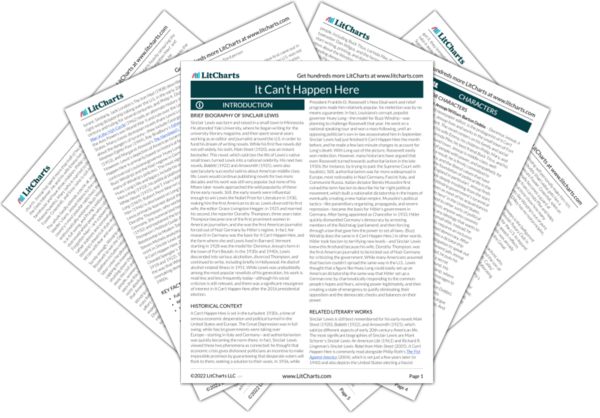Finally, Lewis uses Tasbrough’s promotion to remind the reader that loyalty and self-interest are the most important currencies in a dictatorship. Tasbrough only supports Windrip because Windrip offers him power and money. And he doesn’t realize that if he’s willing to sabotage his rivals to secure power, then his rivals will also certainly be willing to sabotage him. Finally, his decision to ask for Jessup’s support shows that he doesn’t know the first thing about Jessup’s actual beliefs—the reader already knows that unlike everyone in Windrip’s government, Jessup isn’t interested in betraying others for power and money.


